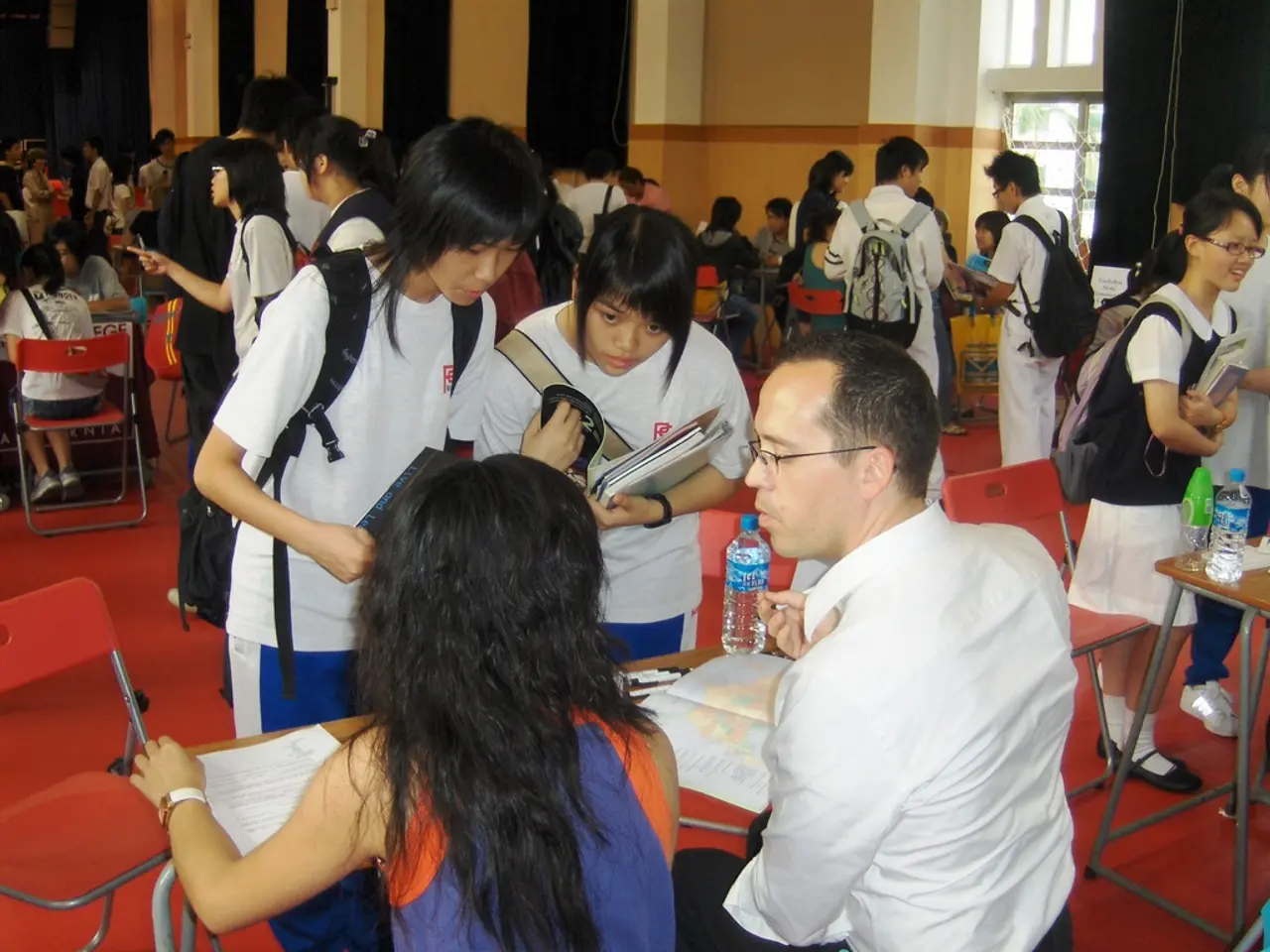The Administrative Authority for Education in NRW Needs to Unveil a Holistic Education Strategy
In North Rhine-Westphalia (NRW), a shortage of teachers, particularly in Mathematics, Informatics, Natural Sciences, and Technology (MINT) subjects, is exacerbating social inequalities. To tackle this crisis and reduce teaching absences while combating social inequalities, a multi-faceted approach is essential.
One key strategy is modernizing and digitally supporting teaching resources. NRW's "ALepa.nrw" project offers free, adaptable, and practice-oriented digital teaching materials for physics and electrical engineering education. By making these resources accessible and flexible, teachers can better engage students, potentially reducing teacher absences linked to preparation burdens or lack of up-to-date materials. This also helps standardize quality MINT education across schools and regions, supporting equity in access to education[1].
Another approach is to promote the attractiveness of MINT education careers. ALepa.nrw's focus on modern and accessible learning aims to make technical and scientific fields more appealing to prospective students and future teachers. Enhancing the appeal of MINT careers addresses the root of teacher shortages by enriching the pipeline of skilled educators in these disciplines[1].
Leveraging regional and labor market research is another crucial factor. Initiatives like the University of Siegen’s MARS project study demographic and labor shifts to develop resilient education and employment strategies. Insights from such projects can guide targeted recruitment and retention policies for teachers in shortage areas, including MINT subjects, by aligning educational provisions with labor market needs[2].
Innovative training and teaching tools are also essential. Emerging technologies like VR-based training platforms can combat skill shortages by providing practical, immersive training experiences. Adopting such technologies in NRW’s teacher education can enhance teaching methods and support skill development amid shortages[4].
Ensuring equitable access to education resources is vital in reducing social inequalities. Providing standardized, high-quality digital materials accessible to all students can help level the playing field for learners from diverse socioeconomic backgrounds. Digital platforms enable self-study and flexible learning, which can particularly assist disadvantaged students who may suffer more from teacher absences or limited instructional time[1].
Expanding vocational training synergies is another potential solution. Germany's dual vocational training system is an effective model to prepare skilled workers and can be extended or adapted to attract and prepare more teachers in technical fields through combined academic and practical training pathways[3].
The consequences of teaching absences and teacher shortages are well-known in NRW, with around 7,100 vacant teaching positions and 4.7 percent of recorded teaching hours being cancelled without replacement[5]. Overwork and sick leave are common among teachers due to the burden of substitute teaching and staff shortages. Schools in NRW need teachers to conduct teaching, and efforts are needed to retain teachers in their profession and attract more to the region[6].
Sonja Bongers, the chairwoman of the SPD city council fraction and a member of the North Rhine-Westphalia state parliament, emphasizes the importance of addressing these issues. By implementing the strategies outlined above, NRW can reduce MINT teacher shortages and associated social inequalities, collectively reducing teaching absences by better supporting teachers and students alike[1][2][4].
References: [1] ALepa.nrw (2021). www.alepa.nrw [2] MARS Project (2021). www.mars-project.de [3] German Dual Vocational Training System (2021). www.dual-training-germany.com [4] Mimbus (2021). www.mimbus.com
- To combat the root causes of teacher shortages in subjects like Mathematics, Informatics, Natural Sciences, and Technology (MINT) and reduce associated social inequalities in North Rhine-Westphalia, initiatives such as the University of Siegen’s MARS project should focus on studying demographic and labor shifts to develop resilient education and employment strategies that align educational provisions with labor market needs.
- In terms of education-and-self-development, promoting the attractiveness of MINT education careers is essential to enriching the pipeline of skilled educators in these disciplines. Projects like ALepa.nrw focus on offering modern and accessible learning materials, making technical and scientific fields more appealing to prospective students and future teachers.




